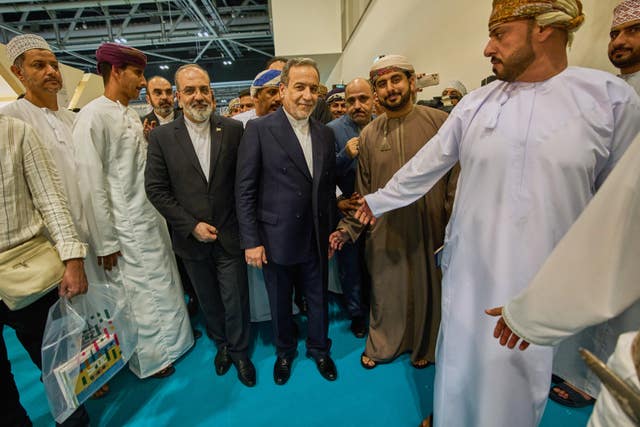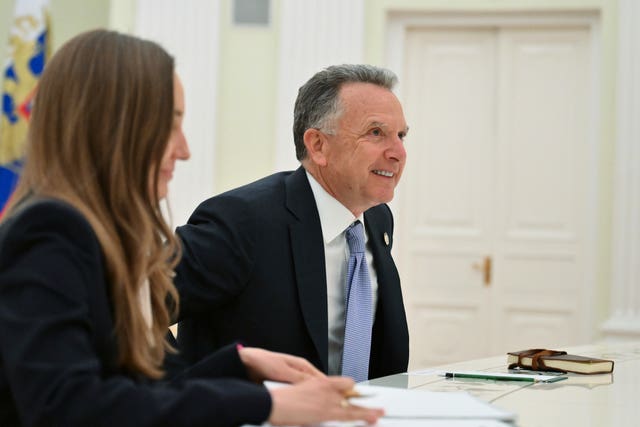Iran-US talks over Tehran’s nuclear programme have ended, source says
The person close to US mediator Steve Witkoff spoke on condition of anonymity to discuss the closed-door talks.

Iran and the United States have held in-depth negotiations in Oman over Tehran’s rapidly advancing nuclear programme.
The talks, which will likely hinge on the Islamic Republic’s enrichment of uranium, ran for several hours in Muscat.
A source close to Steve Witkoff, the US special envoy to the Middle East, acknowledged that the meeting had now concluded. Iranian state television also said that the summit was over.
Neither Iranian foreign minister Abbas Araghchi nor Mr Witkoff offered any immediate specifics or details on the talks.

Mr Araghchi arrived in Oman on Friday and met with his Omani counterpart Badr al-Busaidi, who has mediated the two previous rounds of talks in Muscat and Rome.
The Iranian minister then visited the Muscat International Book Fair, surrounded by television cameras and photojournalists. Video footage from Saturday morning showed Mr Araghchi heading to the talks.
Mr Witkoff was in Moscow on Friday for a meeting with Russian President Vladimir Putin. He arrived in Oman on Saturday.
The talks seek to limit Iran’s nuclear programme in exchange for the lifting of some of the crushing economic sanctions America has imposed on the Islamic Republic, after nearly half a century of enmity.
US President Donald Trump has repeatedly threatened to unleash air strikes targeting Iran’s programme if a deal is not reached. Iranian officials increasingly warn that they could pursue a nuclear weapon with their stockpile of uranium enriched to near weapons-grade levels.
Iran’s 2015 nuclear deal with world powers did limit Tehran’s programme. However, Mr Trump unilaterally withdrew from it during his first term in office in 2018, setting in motion years of attacks and tensions. The wider Middle East also remains on edge over the Israel-Hamas war in the Gaza Strip.

As he travelled to Rome for the funeral of Pope Francis, Mr Trump again said that he hoped negotiations would lead to a new nuclear deal. However, he still held out the possibility of a military strike if they do not.
He said aboard Air Force One: “The Iran situation is coming out very well. We’ve had a lot of talks with them and I think we’re going to have a deal.
“I’d much rather have a deal than the other alternative. That would be good for humanity.”
Mr Trump added: “There are some people that want to make a different kind of a deal — a much nastier deal — and I don’t want that to happen to Iran if we can avoid it.”
A major explosion rocked a port in southern Iran just after the talks began, killing four people and injuring more than 500 others.
Authorities offered no immediate cause for the blast, which appeared to have been caused by a highly combustible material – though officials ruled out any connection withits oil and gas industry.
The private security firm also linked to a shipment of a chemical ingredient used to make missile propellant to the port as well.





